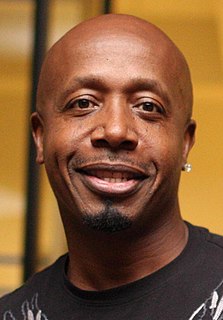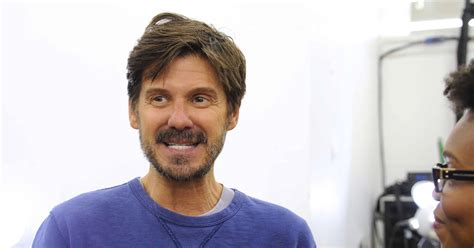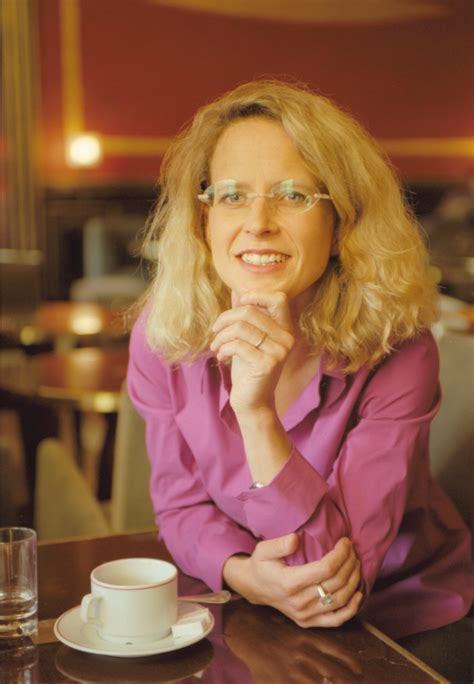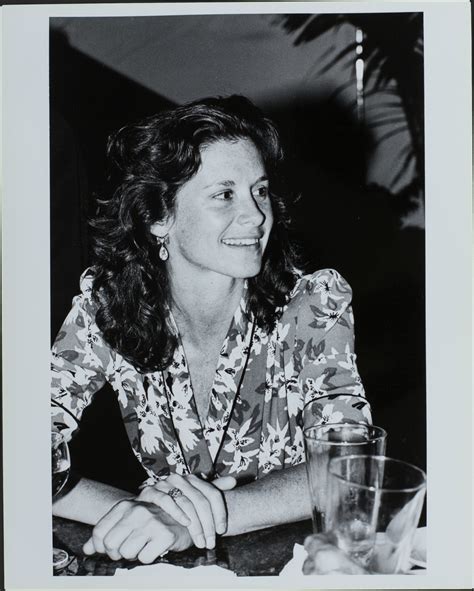Top 135 Insider Quotes & Sayings - Page 3
Explore popular Insider quotes.
Last updated on April 16, 2025.
I think (fantasy football) has become something that needs to be looked at in terms of regulation. Effectively, it's day trading without any regulation at all. When you have insider information, which has apparently been the case, when you have people who use that information, use big data to try and take advantage of it, there has to be some regulation. If they can't regulate themselves, then the NFL needs to look at moving away from them a little bit, and there should be some regulation.
Closing his eyes, he sent up a prayer to anyone who was listening, asking please, for God's sake, stop sending him signals that they were right for each other. He'd read that book, seen the movie, bought the soundtrack, the DVD, the T-shirt, the mug, the bobble-head, and the insider's guide. He knew every reason they could have been lock and key. But just as he was aware of all that aligned them, he was even clearer on how they were damned to be ever apart.
Flawless . . . Tightly choreographed . . . Shipstead gains entry into exclusive worlds and trains her opera glasses on private social rituals, as well as behind-the-scenes hanky panky . . . Similar to classic ballet, the power of Astonish Me arises out of the pairing of a melodramatic storyline with scrupulously executed range of movement . . . Shipstead sweeps you into this insider world of sweat, narcissism, and short-lived magic . . . Transcendent.
As I set out to begin photographing Shanghai, I encountered the insider/outsider phenomena in the most personal of ways. You would walk into an old neighborhood in the center of city, and people would begin to point at you. People would begin to talk about you, spreading the word about the outsider who has wandered into their midst, look at him, he's got a camera, what's he doing, is this allowed, is this OK, how should be respond to him.
I was in the second year of my PhD when I first had the idea - I'd recently started working as a translator, which meant firstly that I was hearing about amazing-sounding books from other translators, and also that I was getting enough of an insider's view of the publishing industry to be aware of all the implicit biases that made it so difficult for these books to ever get published, especially if they weren't from European languages (harder to discover, editors can't read the original, lack of funding programmes, authors who don't speak English).
We have more information than ever before, and it is harder to avoid actually seeing what the other side is saying. Yes, we in Business insider focus on publications that we feel speak to us, but that is the same way it was 20 or 100 years ago. In the US, two million people have subscribed to the New York Times and many more millions think it is a terrible, liberal paper they would never read. We can choose to put ourselves in a bubble of only people who agree with us, but in the digital world there are many more ways of saying "Hey, here is something you might want to consider".
No woman is really an insider in the institutions fathered by masculine consciousness. When we allow ourselves to believe we are, we lose touch with parts of ourselves defined as unacceptable by that consciousness; with the vital toughness and visionary strength of the angry grandmothers, the fierce market women of the Ibo's Women's War, the marriage-resisting women silk workers of pre-Revolutionary China, the millions of widows, midwives, and the women healers tortured and burned as witches for three centuries in Europe.
We were the ultimate consumers of the thing, and we thought, "Every college kid is going to go berserk. High school kids - it will introduce them to music they didn't know about. This is going to be a phenomenon." Plus, it seemed like it was insider-y, yet it was available to everyone. I thought, "Cable companies are going to be snatching this up." You think about the dreck that is on so many cable companies, of course they're going to love this. And we were just crushed that nobody cared.
Well, we have to realize the truth about the person who is a hip-hop insider. Most of these people are not really insiders. They are people who are chosen to do an interview and they will make a statement and say that they are a part of the hip-hop culture, but from an intellectual standpoint, they are not very sharp, because back in '1990..'91 one would criticize somebody for doing one type of commercial and say that's not real hip-hop and then another rapper turns around and sell them malt liquor and say that's real hip hop.
Some directors don't say much. Michael Mann, for example. I remember on 'The Insider' he never had much to say. He would do a scene, just kind of nod, and then set it up to do it again. And you might do a scene 10 or 12 times or more, the same little 31-second bit. And you could tell he wasn't satisfied, but he wouldn't say much.
I didn't know I wanted to be a hairdresser. I was always interested in fashion and imagery in a very naive way, but it was always an attraction, like glitter balls. This was in the late '70s, early '80s, so it wasn't like today, where you kind of know all about the industry. Fashion was a very insider industry then - it was very closed. So I didn't really know what I wanted to do.
The endeavor of being a foreign correspondent means that you will never be their equal. And that has its pros and cons. Were you to be an insider in a particular society, then you would be one of them, and the way you would write about that society would be very different. When you're brought up in a certain way, you have certain blind spots to the things going on in your culture. There is an illumination the outsider brings to a place or a situation that cannot be duplicated.
Such is the nature of an expatriate life. Stripped of romance, perhaps that's what being an expat is all about: a sense of not wholly belonging. [...] The insider-outsider dichotomy gives life a degree of tension. Not of a needling, negative variety but rather a keep-on-your-toes sort of tension that can plunge or peak with sudden rushes of love or anger. Learning to recognise and interpret cultural behaviour is a vital step forward for expats anywhere, but it doesn't mean that you grow to appreciate all the differences.
Most writers begin with accounts of their first home, their family, and the town, often from quite a hostile point of view-love/hate, let's say. In a way, this stepping outside, in an attempt to judge enough to create a duplicate of it, makes you an outsider. . . . I think it's healthy for a writer to feel like an outsider. If you feel like an insider you get committed to a partisan view, you begin to defend interests, so you wind up not really empathizing with all mankind.
My upbringing was very un-Hollywood. I was born in New York and grew up on a ranch. I was never really smitten by the business in those days, never a fan type - just a basic kid watching TV. It wasn't like I was an insider. I was never really brought into the show business side of my father's life. I guess that's been a blessing and a downfall. But it's made my own work the initiation.














